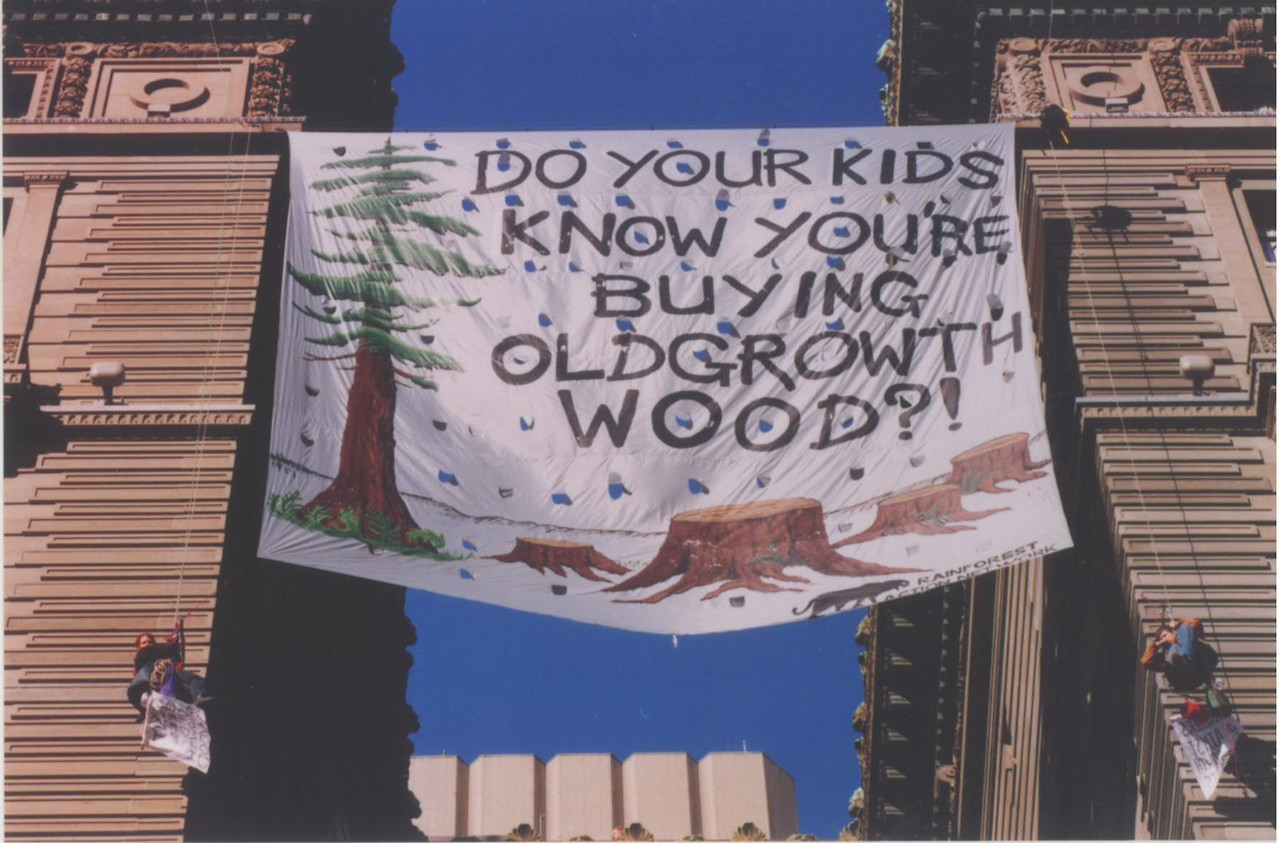 Rainforest Action Network has been campaigning to save rainforests for 30 years.
Rainforest Action Network has been campaigning to save rainforests for 30 years.
In 1998, RAN was in the midst of one of their first major campaigns to drive products made from old growth wood out of the marketplace. In 1999, RAN won one of its earliest major victories: Home Depot, the single largest retailer of wood in the world, agreed to end its sales of wood from endangered forests. Home Depot controlled close to 10 percent of the world’s lumber market and the company’s decision to stop selling old growth wood was the result of a two-year, international campaign led by RAN.
“Our pledge to our customers, associates and stockholders is that Home Depot will stop selling wood products from environmentally sensitive areas,” said Home Depot President and CEO Arthur Blank in an August 26, 1999, press release. “Home Depot embraces its responsibility as a global leader to help protect endangered forests. By the end of 2002, we will eliminate from our stores wood from endangered areas—including certain lauan, redwood and cedar products— and give preference to ‘certified’ wood.”
The campaign targeting Home Depot generated more than 250,000 faxes, e-mails, phone calls, and letters from people concerned about the company’s ongoing sales of old growth wood. Grassroots activists staged more than six hundred demonstrations at Home Depot stores. RAN’s Old Growth team organized a national advertising campaign and worked closely with Home Depot shareholders and indigenous communities affected by Home Depot’s policies. The campaign received celebrity endorsements from The Dave Matthews Band, REM, the Indigo Girls, Oliver Stone, and Ed Asner among others. Shortly after Home Depot’s landmark decision, HomeBase and Wickes Lumber, the country’s sixth and tenth largest home improvement retailers, also committed to stop selling old growth wood.
By early 2000, four other industry leaders—Lowe’s, Menards, 84 Lumber, and Lanoga—had joined Home Depot, HomeBase, and Wickes, and declared their intentions to phase out sales of old growth wood. These companies, with combined wood product sales of nearly twenty billion dollars, vowed to replace old growth wood products with more sustainable alternatives, including certified, sustainably harvested wood. In the words of Home Depot’s Arthur Blank, “Home Depot will use the power of its purchasing dollars to vote for products that do the most to preserve environmentally sensitive areas. We are asking our vendors to help us by dramatically increasing the supply of certified forest products.”











